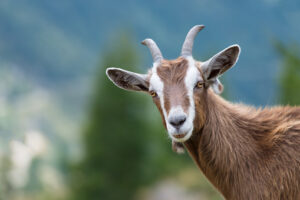
Mosquitoes aren’t just a nuisance—they can significantly affect the health and comfort of your goats by thriving in the very pastures where your herd grazes. Understanding how mosquito breeding habits impact goat pastures is crucial for every goat owner aiming to maintain a safe, healthy environment for their animals.
In this post, we’ll dive into the mosquito life cycle, explain how their breeding habits lead to increased pest pressure on goat pastures, and show how Mosquito Sheriff provides natural, effective mosquito control solutions tailored for livestock owners.
🦟 Understanding Mosquito Breeding Habits
Mosquitoes require specific conditions to breed and multiply:
Standing Water: Female mosquitoes lay eggs in stagnant water sources—this can include ponds, puddles, water troughs, clogged gutters, and even small containers left outdoors.
Warm and Humid Environments: Mosquito breeding accelerates in warm temperatures combined with humidity.
Sheltered Areas: Shady spots near vegetation or dense grass provide resting places for adult mosquitoes.
Since goat pastures often contain some of these conditions, they become prime mosquito breeding grounds.
🐐 Impact on Goat Pastures and Herd Health
1. Increased Mosquito Populations
When mosquito eggs hatch in or near your pastures, the adult mosquito population grows rapidly. More mosquitoes mean more bites for your goats.
2. Stress and Discomfort
Biting mosquitoes cause irritation and stress. Goats may become restless, reduce grazing time, and lose weight or productivity as a result.
3. Disease Transmission Risks
Some mosquito species transmit diseases that can affect goats and other livestock. Controlling breeding habitats reduces this risk.
✅ How to Manage Mosquito Breeding in Goat Pastures
1. Eliminate Standing Water
Regularly inspect your property and remove or treat sources of stagnant water, such as:
Old tires, buckets, and containers
Water troughs with stagnant water
Low spots in pastures that collect rainwater
2. Maintain Proper Drainage
Improve pasture drainage to prevent puddling and standing water formation.
3. Regular Pasture Maintenance
Trim tall grass and dense vegetation to reduce resting sites for mosquitoes.
4. Use Natural Mosquito Control Services
Because it’s nearly impossible to eliminate every mosquito breeding site, professional mosquito control services are essential.
🛡️ How Mosquito Sheriff Helps Control Mosquitoes Around Goat Pastures
Mosquito Sheriff specializes in protecting farms and pastures by targeting mosquitoes at every stage of their life cycle:
We apply plant-based, non-toxic treatments that are safe for goats, other livestock, pets, and people.
Our treatments focus on breeding sites such as standing water and shaded pasture areas.
Regular, scheduled applications drastically reduce mosquito populations, making your pastures safer and more comfortable.
🧠 Further Reading and Resources
✅ Final Thoughts
Mosquito breeding habits have a direct impact on the quality of goat pastures and herd health. By understanding and managing these breeding sites, and partnering with expert services like Mosquito Sheriff, you can create a safer, more productive environment for your goats.
👉 Contact Mosquito Sheriff today to protect your pastures and keep your goats comfortable all season long.

